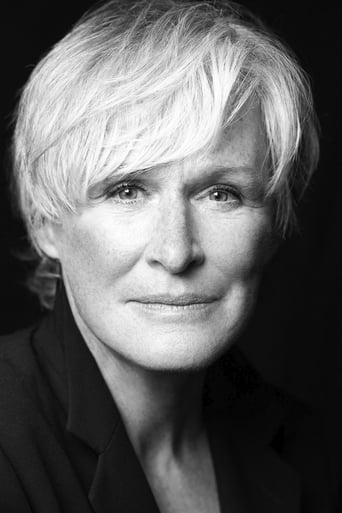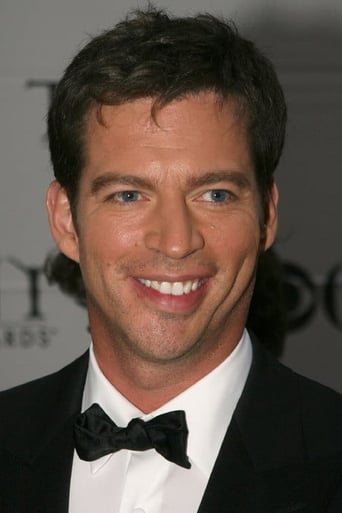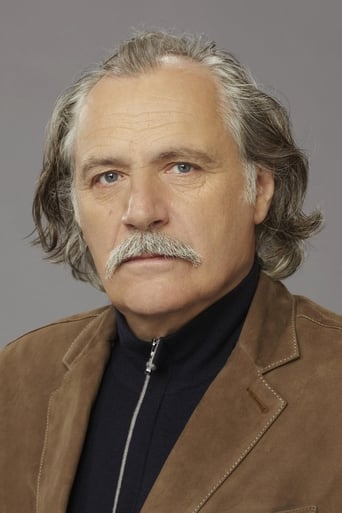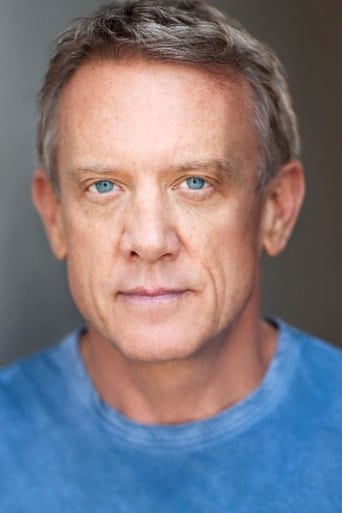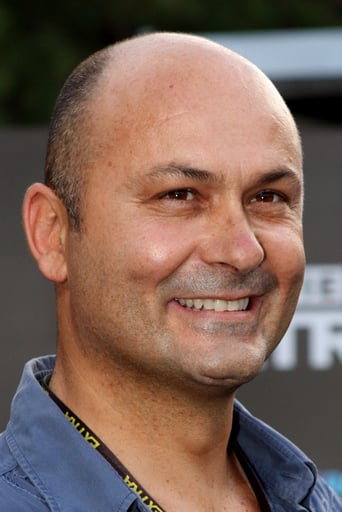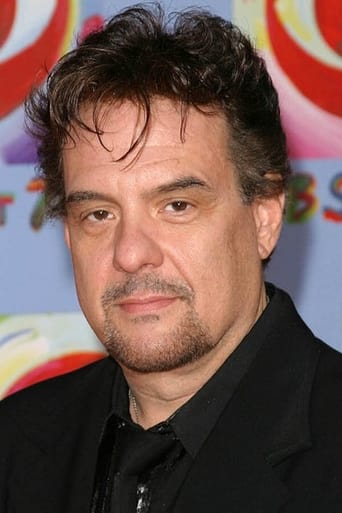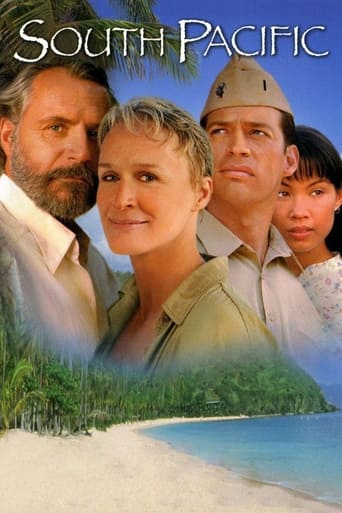
South Pacific
March. 26,2001 PG-13During World War II in the South Pacific love is found between a young nurse, Nellie Forbush and an older French plantation owner, Emile de Becque. The war is tearing them apart.
Similar titles
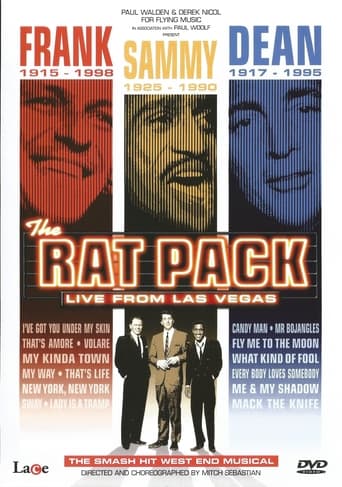
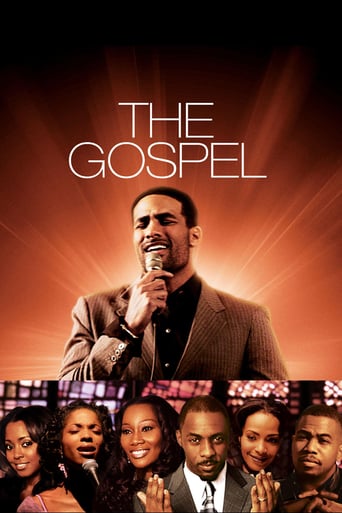
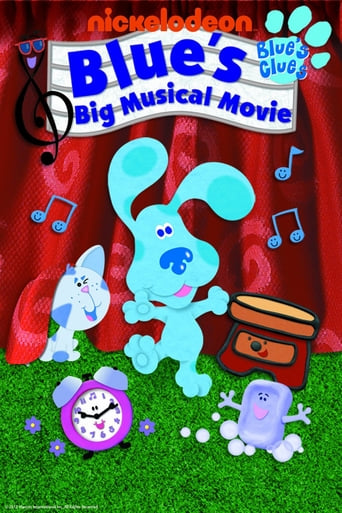

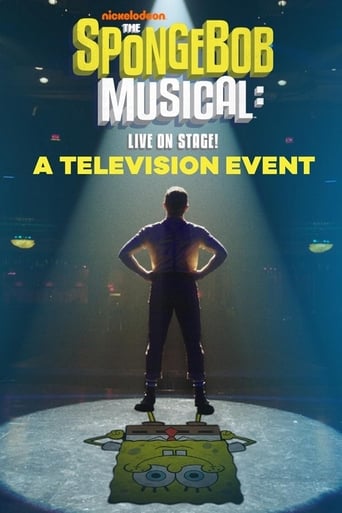

Reviews
the audience applauded
A lot of perfectly good film show their cards early, establish a unique premise and let the audience explore a topic at a leisurely pace, without much in terms of surprise. this film is not one of those films.
A movie that not only functions as a solid scarefest but a razor-sharp satire.
The movie's neither hopeful in contrived ways, nor hopeless in different contrived ways. Somehow it manages to be wonderful
Rodgers and Hammerstein's musical drama masterpiece was given a rather bloated and unsatisfying film treatment in 1958, a badly shot film with a poor sense of pace; a cast that can best be described as uneven, and some wacky and inexplicable choices such as dubbing Juanita Hall's Bloody Mary when she was perfectly capable of singing her own songs, having created the role on Broadway. The two male leads could not do their own singing either, and Hollywood's practice of dubbing vocals has always irritated me.So in 2001, director Richard Pierce set out to do a remake. For television, of all things. And all things considered, with just two rather egregious missteps, the proceedings were much better this time around and I found this remake far more satisfying than the 1958 film despite its flaws.They start with a real winner: Glenn Close as Nellie Forbush. It is clear they were thinking more of Mary Martin here than of Mitzi Gaynor; Nellie is not yet middle-aged, but she is not a young girl, either. And Close's voice is more than equal to the task; she even manages to infuse it with the same "gee whiz" quality that Mary Martin did so well.Her Emile is Rade Sherbedgia; his baritone is lighter than previous Emiles, so his renditions of songs like "Some Enchanted Evening" and "This Nearly Was Mine" are persuasive rather than bravura. But his voice is lovely, and his chemistry with Close far better than that between Mitzi Gaynor and Rossano Brazzi in the first film.Also on hand are Lori Tan Chin as Bloody Mary and the late Robert Pastorelli as the comic-relief Luther Billis. I found Chan's speaking voice a bit unnerving at first: she speaks in a sharp, high-pitched whine that I found hard to believe was her natural speaking voice. But her singing is another story.Here comes the first egregious mistake: Bloody Mary's sweet little number "Happy Talk" was cut because the producers felt it was too "politically incorrect (?!?!?!?)." Yeah I know; don't ask me either. But thank heaven, they did NOT cut her signature tune, "Bali Ha'i;" her singing voice is lovely and she truly makes the song her own.Billis, of course, is the one character who does not need a great singing voice; in fact it is better if he doesn't have one, and Pastorelli certainly has the necessary comic chops to make his Billis a proud successor to that of Ray Walston.Now I come to the bit of casting that, if the rest of the picture were not so wonderfully done, would have sunk the proceedings completely: Harry Connick, Jr as Lieutenant Joe Cable. He looks way too old for the part, for starters; Connick was thirty-four when he made this but looks ten years older. And his voice is totally wrong for the part. It is a swell voice for a lot of things, but not for a Broadway musical. Cable is supposed to be a tenor; Connick, a baritone, could not possibly reach the notes in the original score so his songs were all transposed down a third. "You've Got to Be Taught" does not suffer too much from the transition; it is sung with a soft intensity that any vocal range can accommodate. But Cable's signature tune, "Younger than Springtime," is a disaster. For starters, having a man who looks like he is tottering on the edge of middle age sing a song called "Younger than Springtime" creates an irony that was not intended by the authors, and the climactic final notes of the song simply fail to land when the highest note is an E as opposed to the high G of the original. And Connick being a crooner, even if he had been able to sing the higher register, is not and never has been a belter. Power was what was needed here, and the song simply fails to land. It would have been better had they simply cut it.But all in all, there is more right than wrong with this mostly remarkable production, and the fact that it was done for TV and done successfully is all the more remarkable. At the end of the day, the evening really belongs to Glenn Close and Rade Sherbedgia, and they acquit themselves so beautifully that even with the flaws I have mentioned this is a joy to watch.
Only recently did I fall in love with this musical when I watched Lincoln Center's stage production on PBS. I was curious to know more of its history and watched the movie adaptations from 1958 and 2001. Movies are definitely a different genre from the stage, and it was interesting to see that in each version, the choice was to develop dialog into visual action, focusing on rounding out a fuller story, rather than relying on the musical emphasis to tell the story. Stage productions demand more movement from the characters, more choreography, while the camera allows for more still and close encounters. On stage, the movement and music are what tell the story.In the bonus feature of the DVD, Ms. Close says something along the lines that a classic is a classic when it can endure many interpretations and retain its integrity. She also stated that she had wanted to do this all her life and remembered Mary Martin as the model for this role. It seems circumstances happened for her to fulfill her dream, albeit at middle-age. So it seems that a new adaptation for this more mature casting lent a new interpretation to this classic. They followed the precedent of the 1958 version in many ways, and even used colored filters for the Bali Hai number – with much better technique and effects! Overall, I thought the story, as they chose to adapt it, was put together very skillfully.I noticed in this adaptation that most all of the comic edge was taken out. In its place was a kind of dramatic /romantic pathos, which made the tempo a little slower and more deliberate. The re-arranging of some scenes, and certain deletions, contributed to a change in tensions between characters and in the flow of the story than found in the stage production.I thought the acting was very good all around. Ms. Close also talks about using dramatic interpretation for the songs, while singing. I very much appreciated her dramatic interpretation of the songs. But also felt there was a limitation in voice skill, and perhaps due to careful casting, the rest of the cast did not give her much competition. The interpretations through music seemed consistent with the pathos already established through dialog. There was no singing between Emile and Nellie in the scene at Emile's house when the guests have gone home. And Bloody Mary's 'Happy Talk" was also cut, as well as 'My girl back home '. Again, the kinds of music deletions (as well as interpretations) gave the film a different emphasis. Even though it is a musical and uses music, it did not rely on the music (singing and orchestra) to tell the story as much as a stage production.However, the choral numbers (Nothin like a dame..." and "Wash that man..") I thought well were thought out and executed very well. Especially, the former: I fully enjoyed the composition of the shots and the editing. I noticed very wonderful composition of shots throughout.Though there is no specific age given for Nellie, plot elements do define it to some degree. Nellie struggles with her mother's assumptions and expectations for her daughter, especially regarding men and marriage, which might apply more to a younger woman transitioning away from home and parents, rather than a middle-aged woman. Indeed, the lines about marriage and men for Ms. Close's Nellie were cut in this scene with her mother's letter, as was any serious indication of an emotional struggle. This struggle, and the struggle with if she really knows enough about this man, give her character an emotional juggling act more typical for a younger woman in the new stages of love. But with the first struggle essentially cut,the tension of two struggles and the juggling is lost. Indeed, Ms.Close's Nellie seemed very confident, independent and secure, never too overwhelmed. Also, with a middle-aged Nellie, there has to be some assumption that she has her own romantic history, a certain wisdom from experience. Not all the traditional elements of the original play work for this interpretation.Another characteristic of Nellie is her southern roots. Ms. Close did not play her with any dialect, perhaps wisely. But I found that emphasizing to some degree this characteristic helps in the development of Nellie and her reaction to the news of Emile's children's mother.One of my favorite roles of Ms. Close is Sarah in "Sarah, Plain and Tall" (and its sequels), and she plays Nellie in a very similar fashion, which helped me understand her interpretation of Nellie a little better. (I personally would have preferred a softer hair-do and a few more feminine costumes for her Nellie.)
I don't even know why I chose to watch this remake of SOUTH PACIFIC when it premiered on ABC. I love musicals but this is one of my least favorite musicals and I HATED the 1958 film version so it's amazing that I even watched this at all but I did. Glenn Close actually made a credible Nellie Forbush even she might be a little too old for the role. Glenn's squeeze at the time, the late Robert Patorelli, made a great Billis, but the best part of this show for me was Harry Connick Jr. as Lieutenant Cable. His rendition of "Younger than Sprintime" was dreamy and his "You've Got to be Carefully Taught" was appropriately disturbing. The cinematography is lovely and the show is well mounted, even if it goes on a little too long, but if you're a fan of the musical, I guess this remake is pretty good. If you're a Glenn Close fan and you like this musical, you will probably like this remake.
Glenn Close was far too old, couldn't sing, and did not look soft and sweetly naive, but rather brusque.The only other cast member almost as bad as Close was the actress who played "Bloody Mary." She was funny looking, could not sing, and seemed downright evil.Gone was the comedy, which was needed. Not having painted backdrops instead of sets was probably the only improvement on the original. Whoever was responsible for this seemed to be trying to screw up the story line as much as possible in the name of originality.It was AWFUL. I will be shocked if this one is EVER repeated. It should be destroyed.
Top Streaming Movies













